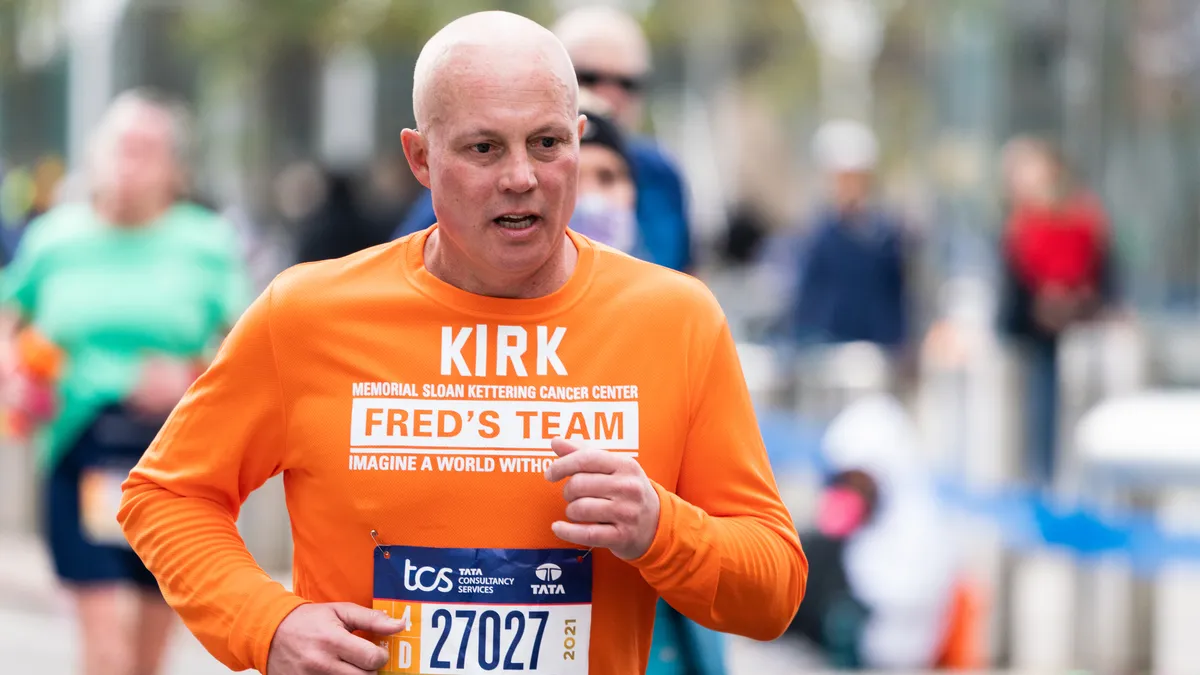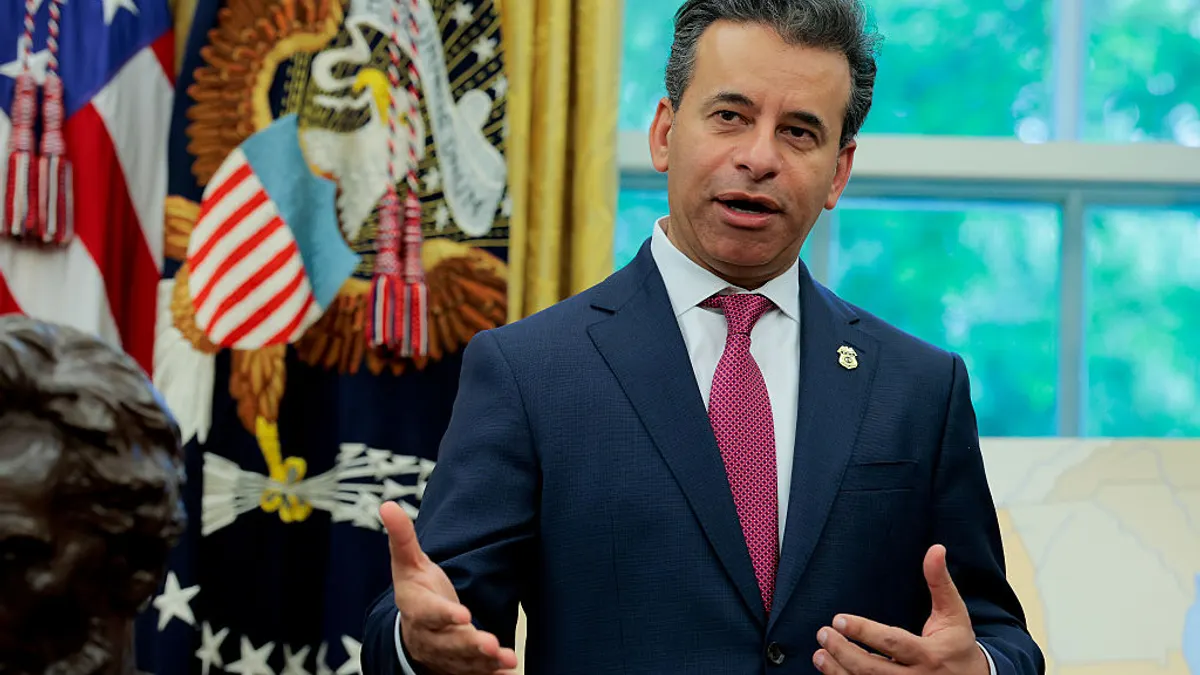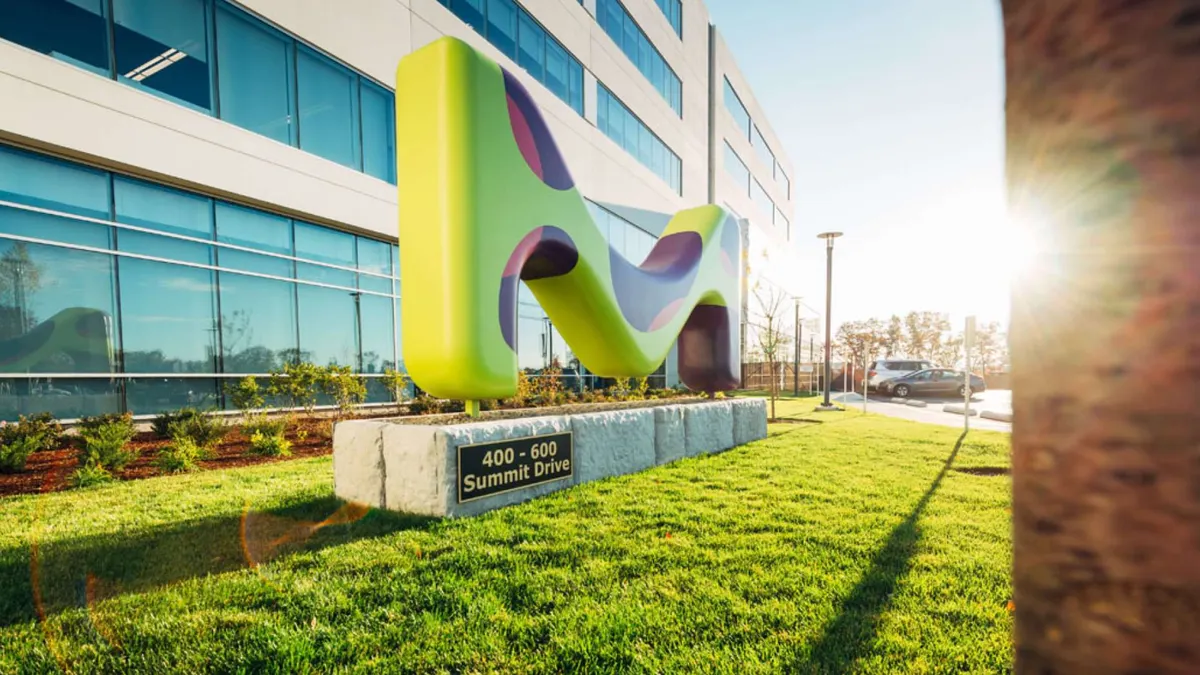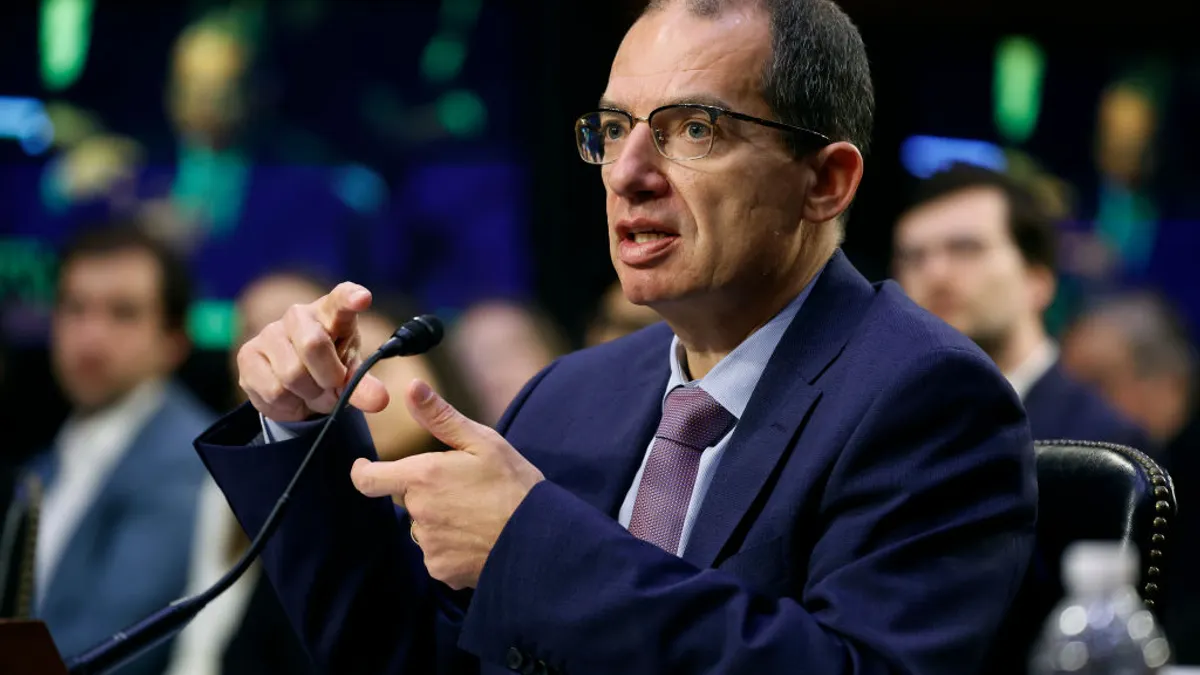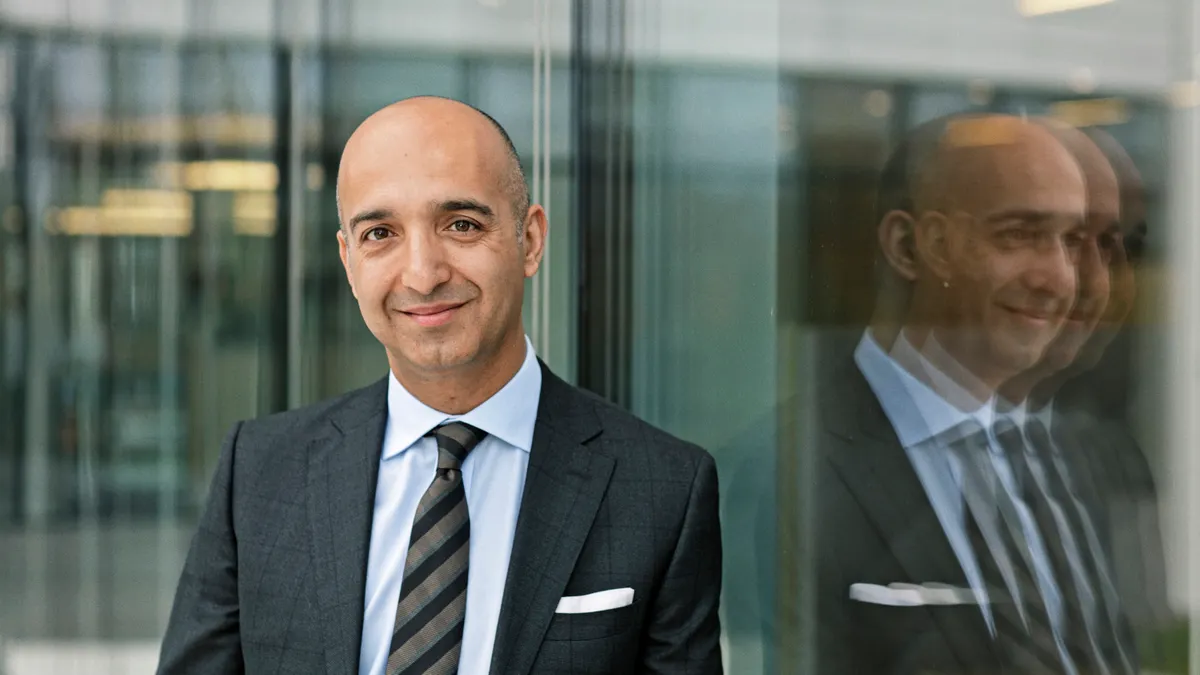One minute and 39 seconds. This was how long it took Peter Kirk, CEO of Sermo, to run 200 meters — the first stop light on his block — just five weeks after being released from a year-long hospital stay. While he was disappointed in this first attempt to regain normalcy after being diagnosed with a life-altering disease, Kirk’s journey to recovery and how he “found his possible” is nothing less than remarkable.
Nearly a year earlier on Oct. 22, 2020, Kirk’s wife urged him to see a doctor after he felt poorly for a couple of days but thought it was just a stomach bug.
“I’m the classic dumb, tough guy who’s like, I don’t need to see a doctor. I’m fine,” he said.
“I am neutropenic, which puts me in contact with hematologists quite often, but mostly for antibiotics to get over a cold or some little thing. But my wife said, ‘You’ve got to go see (the hematologist.)’ He gave me the normal blood test, and when he saw that my white blood cell count was way off the charts, he said, ‘You’re going to the hospital right now. This is super serious.”
Kirk’s diagnosis rocked his family’s world: acute myeloid leukemia, an aggressive form of blood cancer. And about 48 hours later he was in an induced coma and intubated. (Kirk’s full medical journey is detailed in a short three-part documentary.)
“The whole thing just came out of nowhere, because I just had a blood test a couple of weeks ago and everything was fine,” he said.
During the following year, Kirk would undergo almost two dozen blood transfusions, rounds of chemotherapy, and on June 9, 2021, an “850 million cell bone marrow transplant.” The treatments proved successful and because of the transfusion received through Be the Match from his donor Sam — whom he would later get to meet — Kirk was deemed cancer free.
“The doctors told me the procedure had gone really well. But when you come out after a stem cell transplant, you’re decimated, you’re really a shadow of yourself. I needed help walking up just a couple of stairs. I couldn’t open my Coke can,” Kirk said. “I spent time recuperating at a friend’s house at the beach with my family. I’d been able to do a few laps in the swimming pool — bit by bit I was making progress. When we got back to New York, I decided one day, just six or seven months after receiving the transplant, to go for a run.”
The next crucial steps
Determined to come “out of the shadows” and move beyond being a patient, Kirk laced up his running shoes. He knew he wasn’t going to set any land records and he promised himself that he would go as fast as he could, and, if he had to stop, he would.
“I came to the first stoplight, and I had to stop. My first run was 1 minute and 39 seconds … it was barely a block,” he recalled. “As I walked home, like I promised I would, I basically panicked, and thought, is this my new me? I remember thinking very specifically, should I start doing old man exercises? Whatever that means, I’m not sure, but some sort of machine where you’re doing something really slowly. And then my next thought was, hell no. I need a big-ass goal. I need to do something really big.”
“The hardest part right now when I speak to people is to make them understand it’s not about running. It’s about you doing something; that is your possible.”

Peter Kirk
CEO, Sermo
In the next 10 seconds, Kirk made the decision to sign up for the 50th New York City Marathon. Not having ever run a marathon before, or even thinking of himself as a “runner,” Kirk started researching the registration process.
“That night, I took my family to dinner and said, ‘I’m going to run the New York Marathon.’ And they thought I was totally crazy,” he recalled.
The goal and deadline were set: He had 12 weeks to get in shape to run 42,200 meters.
The next day he announced his goal to the Sermo leadership team, who also questioned his sanity. Undeterred, he used a tried-and-true technique that had helped him in the past to conquer a difficult challenge: let as many people know as possible. And so he also posted about it on LinkedIn.
“I find it helps to let a bunch of people know what you are doing, because then you really can’t back down,” he said. “What I didn’t count on was the response; it was overwhelming.”
Ironically, as the CEO of Sermo, a social network platform that brings together more than 1 million physicians from around the world, he didn’t personally use social media.
Messages from the online community ranged from “how inspiring” to “amazing” to “we will be with you every step.”
“It was crazy. Now, I really couldn’t stop,” he said.
He was off and running, starting with a goal of 200 meters. After struggling to go further, Kirk confessed that he was not “too far from quitting.” But the next day he suited back up and committed to going around the block without “stopping no matter what.”
“I remember thinking I’m going to go really slow, and I’m just going to look down at the ground and not stop,” he said. “I’m not going to look up and see how far it is to the next point. My legs were moving slowly, but I wasn’t walking, and I made it around the block — a half a mile. This fifth run was the toughest and most important run of all. After that, I started progressing upward.”
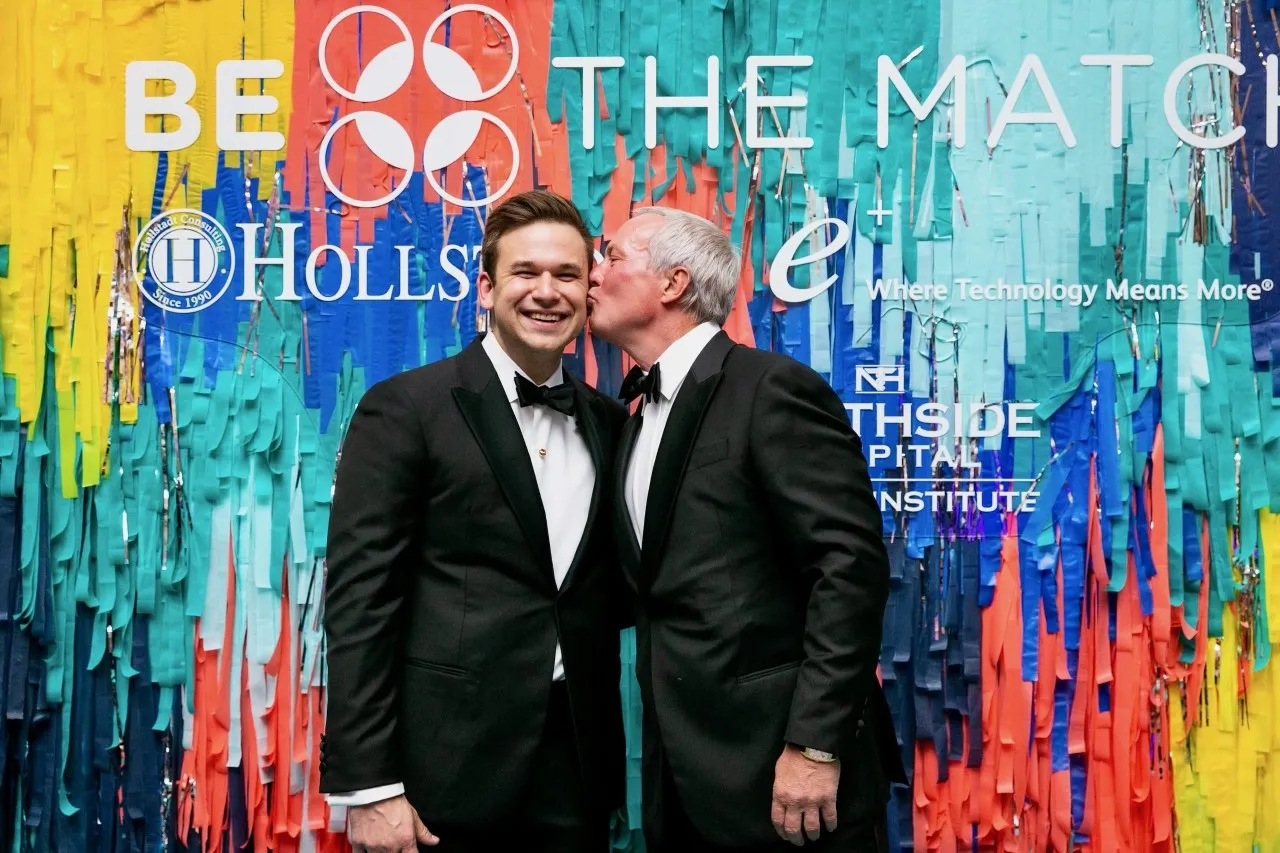
The next chapter
On Nov. 7, 2021, wearing bib number 27027, Kirk was determined to cross the finish line and “begin the journey” of the rest of his life.
With family and friends cheering him along the 26.2-mile course, five hours and forty minutes later, Kirk achieved his goal and ripped off the patient band from his last doctor visit. This officially ended his “being defined as a cancer patient.”
“After the New York Marathon, having experienced amazing feedback and people saying how inspired they were by what I was doing, I was sort of feeling a little bit empty,” Kirk said. “I was thinking, you just got everything you wanted. You got the transplant, you survived, you’ve got a great family. You are no longer defined as a patient, so, why am I feeling empty? What now? What am I supposed to do?”
Less than a week later, Kirk surprised himself. He decided to go for a run, something he pledged he wouldn’t do for at least another six weeks.
“It wasn’t a plan, it wasn’t well thought out,” he said. “I put my shoes on and thought, where am I going to go? I decided to go to the Hudson River. And then I thought, well, if I get to the Brooklyn Bridge, I’ll just need less than one more mile, and if I then run all the way back, that’ll be half a marathon. So, maybe I’ll try that.”
He did two more half marathons the next week. On the third run in 10 days, it came to him: “This can be my thing.” Running became joyous for him, and he thought this could be the thing that he could use to inspire others. Once again, he set a “big-ass goal:” run 1,000 half-marathons by the 10th anniversary of his transplant.
“That’s a meaningful story,” he thought. He shared his vision with his Sermo leadership team, who came up with the idea behind “Be your possible.”
“The half-marathon became my way of hopefully inspiring something in you,” he said. “The hardest part right now when I speak to people is to make them understand it’s not about running. It’s about you doing something; that is your possible.”
Kirk, who now runs two to three half marathons on a normal week, was driven to do more. Again, with the help of his team he decided to tap into Sermo’s network of physicians.
“Sermo has a lot of doctors who want to raise money for medical research, and I came up with the idea to have the company help organize the first global run for doctors,” he said. “The doctors lace up, and they tell us how long they want to run, and then they tell us what medical research organization they want their miles and donations to go toward.”
This was the start of the Run with Peter “lace up to save lives” initiative. The first event held in June 2022 included 2,400 doctors from 77 countries. “I think they ran a total of 24,000 miles, and we raised a quarter million dollars,” Kirk said.
Donations were made to several organizations, including The American Heart Association, St. Jude’s Children’s Research Hospital, International Society for Infectious Diseases and The Breast Cancer Research fund.
His advice to those who are facing insurmountable odds — just set a goal, whether it’s a big goal or an incremental goal, what’s important is to move forward. But, of course, tell as many people as possible to keep yourself motivated and accountable.
“You will be surprised by the amount of support you will receive,” Kirk said. “Set goals. Don’t just accept the status quo, because if you do, there’s a good chance you will never move forward, or not in a meaningful way.”



